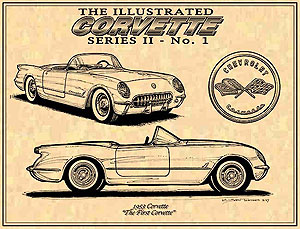Dateline: 8.12.11
It all had to begin somewhere…
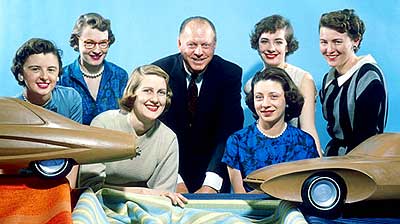
What an OUTRAGEOUS proposal! Take a Chevy sedan chassis and drivetrain, soup up the in-line-six “Stovebolt” engine, and dress it with a sexy lightweight body made of an exotic new material – fiberglass. That’s was GM chief of design, Harley Earl’s idea of an American sports car.
The Stovebolt-Six engine was goosed by adding three Carter one-barrel carbs, a more aggressive solid-lifter cam, increased compression to 8:1, dual valve springs, stronger exhaust valves, and a high-efficiency water pump. The 115-HP Stovebolt six was reborn as the Blue Flame Six and packed a mighty 150-HP @ 4200 rpm and 224 LB/FT or torque. (calm down, calm down) The transmission was the tried-and-true Chevrolet Powerglide automatic with the shifter on the floor.
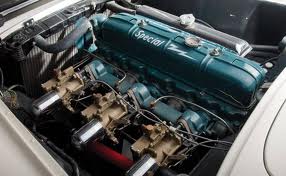
While the fiberglass was exotic for 1953, there was a more practical reason for using the plastic material – COST. Even though finishing the body was more labor intensive, it was no where near the cost of making the huge metal stamps for steel body parts. Chevrolet engineers determined that if the car failed, they would have a minimal financial risk using fiberglass.
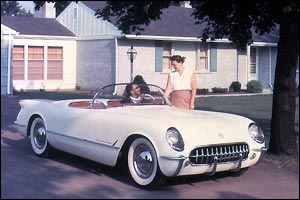
The first year production run was just 300 cars, available in any color, so long as it was white. All ‘53 Corvettes had red interiors. Another interesting thing about the first Corvettes is that now many of the 300 cars were actually “sold.” Most were given to executives and several celebrities, including actor John Wayne. Like I said in the beginning, it all had to start somewhere. With humble beginnings like this, it’s a modern American automotive miracle that the car ever survive. – Scott
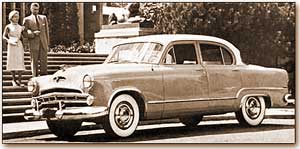
PS – Check out our 1953 Corvette art prints HERE.
